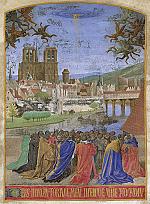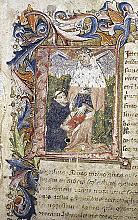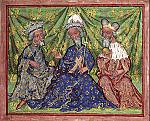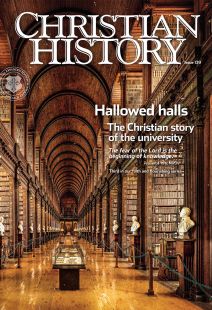Hallowed halls: editor's note
Even though my older daughter is only 14, we’ve already begun to talk about college. Not in the prepping-the-kid-with-an-impeccable-resume-to-get-into-an-Ivy-League-school sense. Just in a sense of “What do you want to do? What do you think you might major in? Do you want to go to a big school or a small one? Do you want to stay close to home or go far away?” I ask these questions as an explicitly Christian parent, wanting the best possible education for my daughter on both an informational and a formational level.
Thirty-five years ago, when I was just a little older than she is, I too was considering these questions. Back then we submitted typewritten college applications (as I have never been able to touch-type, mine included copious amounts of white-out). Schools sent us brochures in the mail, hoping to entice us to an open house. I visited a few schools, went to some college fairs at my high school, read brochures, had phone conversations with admissions folks, and ultimately applied to eight colleges.
The one I selected was a small liberal-arts college about two hours from my home, historically church-related but not explicitly Christian—no doctrinal or chapel requirements. I did what many college students do: picked a major or two (English and music), read works of classic literature and learned a little German, took electives, did theater and joined a service organization, made late-night ice-cream runs while studying, attended lots of concerts and lectures, went to chapel, and stayed up late in the dorm discussing the Meaning of Life with my friends. All in all it was thoroughly fulfilling but not in any way unusual. Serious study of the liberal arts prepared me pretty well for the direction my life has taken since, both spiritually and intellectually.
Maybe your experience looked like mine, or maybe it didn’t. Maybe you went to a state school or an explicitly Christian college. But I suspect you wrestled with some similar questions. Whether, and how, Christians should go about educating young adults like me—and my daughter—for the common good has been a question almost since there have been Christians.
Does a classical education complement Christianity or oppose it? How important are the liberal arts? What place does religion have in the university curriculum? Should explicit Christian practice be required of students? What courses and activities best equip young people to be good Christians and good citizens?
What’s the right answer?
In this issue of Christian History, we look at a number of attempts to answer these questions, beginning with the development of the first institutions that clearly look like modern universities in the High Middle Ages.
We explore their vision for a classical education centered around theology as the queen of the sciences and trace what happened to that vision as post-Enlightenment developments ushered in a new kind of university focused on research and professional training—conceiving of religion as a subject of study like any other. Finally we consider how these visions made their way to America, where today wholly secular universities, explicitly Christian schools, and historically church-related colleges like my alma mater all dot the landscape. We trace this history through a “case study” approach, following schools of particular historical interest to the story.
I don’t know yet where my daughter will go to college. I do, after working on this issue, feel better equipped to ask questions about what her experience might look like. There won’t be any typewriters or white-out. But there will, I hope, be questions about the common good. CH
CH appreciates Robert Porwoll’s assistance with the preparation of this issue.
We thank the many readers who support this ministry, making it possible for us to provide Christian History in print. Please visit www.ChristianHistoryMagazine.org to renew or begin a subscription to Christian History.
By Jennifer Woodruff Tait
[Christian History originally published this article in Christian History Issue #139 in 2021]
Jennifer Woodruff Tait is managing editor of Christian History magazineNext articles
Restoring the divine likeness
Christian humanism and the rise of the medieval university
Jens ZimmermannA guild of learners
What was it like to study at Oxford and Cambridge in the Middle Ages?
G. R. EvansSupport us
Christian History Institute (CHI) is a non-profit Pennsylvania corporation founded in 1982. Your donations support the continuation of this ministry
Donate







